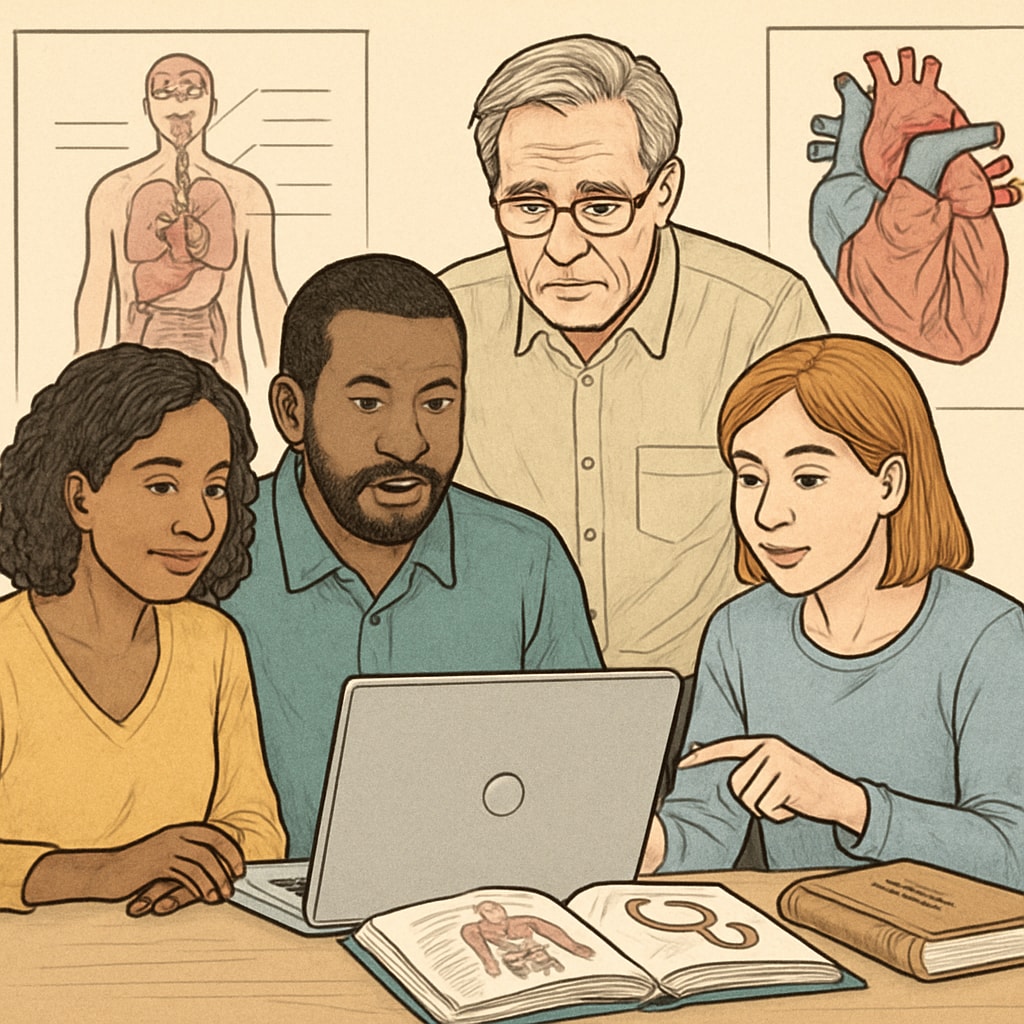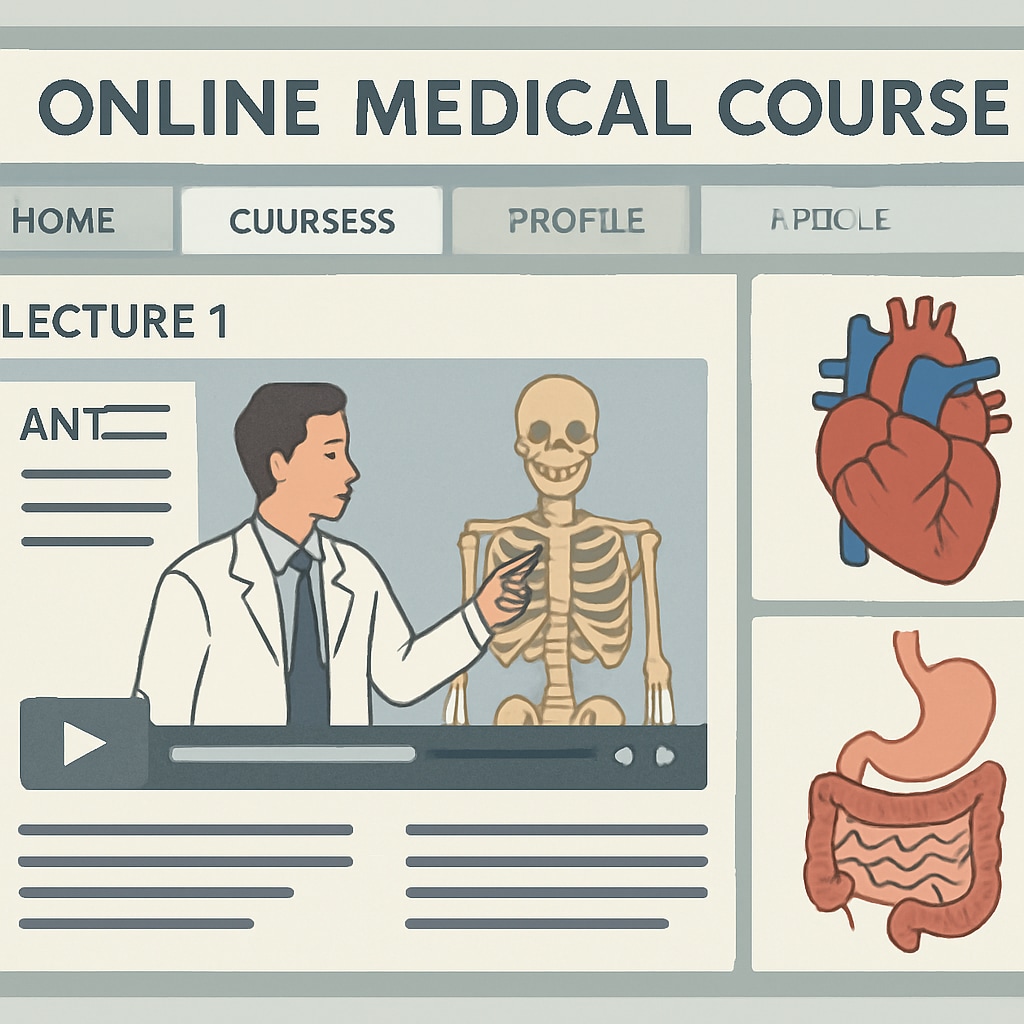As health awareness grows globally, the demand for accessible medical education is no longer limited to healthcare professionals. Many individuals from non-medical backgrounds are eager to acquire professional medical knowledge for personal growth, caregiving, or even career shifts. However, they often face the challenge of finding resources that are either too specialized or overly simplistic. This article explores how non-medical background learners can effectively navigate medical education, offering practical strategies and recommended resources such as online courses, books, and communities.
Why Non-Medical Learners Seek Medical Knowledge
In today’s interconnected world, understanding medical concepts has become increasingly relevant. Whether it’s to make informed decisions about personal health, support family members, or participate in health-related discussions, gaining medical knowledge empowers individuals. Additionally, fields such as health journalism, medical technology, and patient advocacy often require non-medical professionals to understand foundational medical principles.
However, one common barrier is the accessibility of resources. For instance, academic textbooks may be too dense for beginners, while popular health blogs may lack scientific rigor. Thus, finding a balanced learning path is crucial.

Practical Strategies for Non-Medical Background Learners
To effectively learn medical concepts, non-medical learners should adopt a structured approach. Below are practical strategies:
- Start with foundational courses: Begin with introductory courses that cover anatomy, physiology, and medical terminology. Platforms like Coursera and edX offer beginner-friendly courses designed by top universities.
- Leverage multimedia resources: Consider YouTube channels like “Khan Academy Medicine” for engaging and digestible video lessons.
- Join communities: Participate in forums or social media groups where medical professionals and learners engage in discussions. These platforms can provide real-world insights.
- Use simplified medical books: Books such as “Medical Terminology for Dummies” or “The Human Body Coloring Book” make learning interactive and less intimidating.
By combining these resources, learners can create a tailored learning experience that aligns with their goals and existing knowledge levels.
Top Online Courses for Medical Knowledge Acquisition
Online courses are among the most effective resources for non-medical learners. They allow flexibility in schedule and pacing, making them accessible to working professionals. Here are some recommendations:
- Introduction to Healthcare: Available on Coursera, this course covers the basics of healthcare systems and medical ethics.
- Basic Anatomy & Physiology: Offered on edX, this course provides a comprehensive overview of the human body.
- First Aid and CPR: Platforms like Udemy offer practical courses that teach life-saving skills.
These courses often include interactive elements such as quizzes, assignments, and forums, enhancing engagement and retention.

Additional Tips for Long-Term Success in Medical Education
To ensure sustained progress in medical education, non-medical learners should consider the following:
- Set clear objectives: Define what you wish to achieve, whether it’s understanding medical research, improving health literacy, or exploring a new career path.
- Stay consistent: Dedicate a specific time each week to study. Consistency is key to mastering complex topics.
- Seek mentorship: Connect with healthcare professionals who can provide guidance and clarify doubts.
- Apply what you learn: Practice interpreting medical articles, understanding prescriptions, or engaging in informed health discussions.
Remember, the journey of learning is as important as the destination. Celebrate small achievements to stay motivated.
Conclusion
Medical education is no longer the exclusive domain of healthcare professionals. With the right resources and strategies, non-medical learners can gain valuable insights into the world of medicine. From online courses to interactive books, a wealth of opportunities awaits those willing to explore. By staying consistent and curious, learners can bridge the gap between their current knowledge and their aspirations.
Whether you aim to make informed health choices or pursue a new career, the journey starts with a single step. Equip yourself with the tools and support necessary for success, and you’ll find that medical knowledge is within your reach.
Readability guidance: Short paragraphs, actionable tips, and accessible language ensure readability. Transition words like “however,” “in addition,” and “for example” enhance flow. Lists are used to summarize key points.


